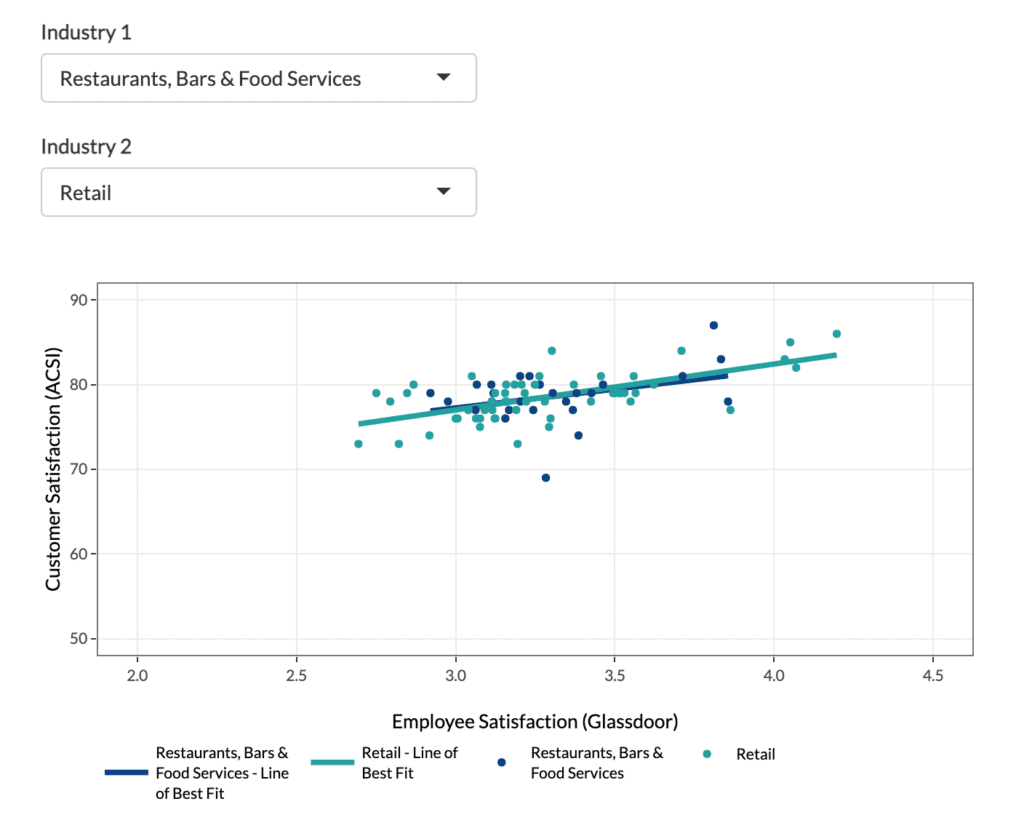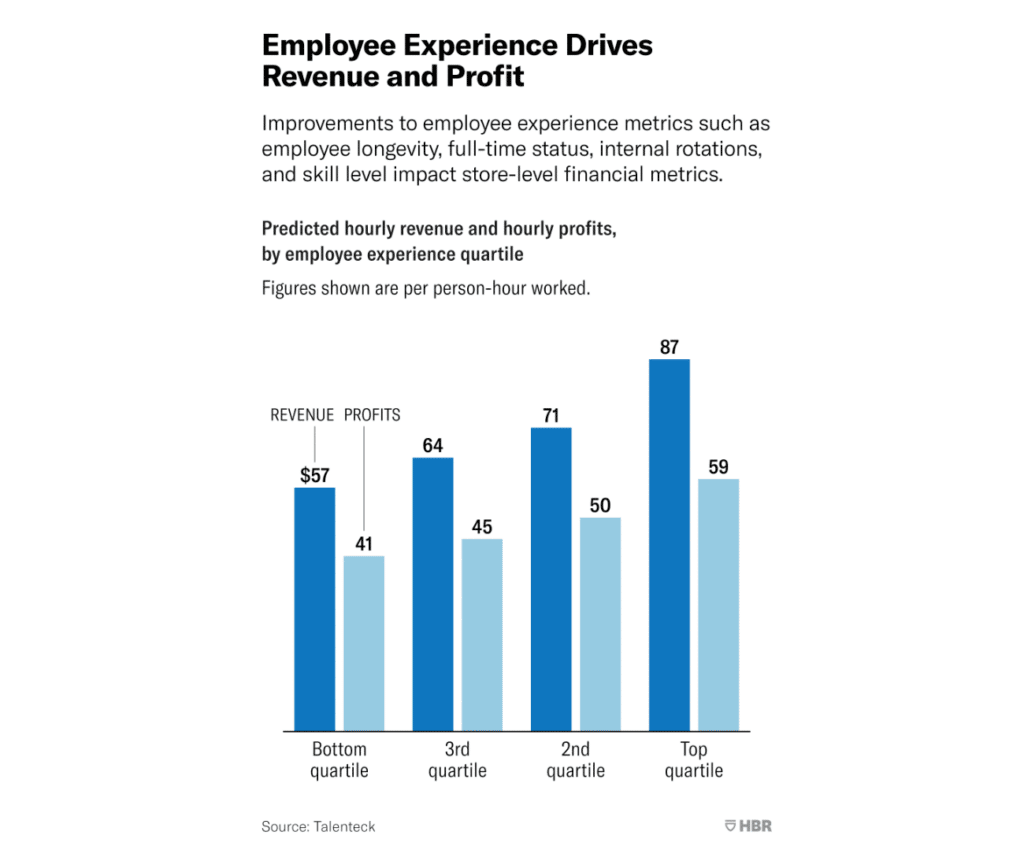Happy Employees Mean Happy Customers---and Higher Revenue
Companies are often looking to improve customer experience and satisfaction as an overall business strategy. There are a number of ways to achieve this, such as keeping open communication with clients and striving to make the answer "yes" when customers have ideas or requests. But research also tells us there's another avenue that starts even closer to home: studies have shown a direct correlation between the satisfaction of employees and that of customers. In other words, happy employees mean happy customers. Then, these happier customers lead to higher revenues and profits---so creating a great environment for employees is an important foundation for business success.
The Connection Between Happy Employees and Enthusiastic Customers
A 2019 study looked at the link between employee and customer satisfaction among 13 different industries. The companies they examined were large, well-known ones such as Costco in retail, Ford in manufacturing, or Kaiser Permanente in healthcare. Researchers cross-compared Glassdoor employee reviews of their companies with ratings from the American Customer Satisfaction Index (ACSI). Pretty much across the board, companies with higher employee satisfaction tended to correlate with more satisfied customers.

They recognized that correlation doesn't necessitate causation---perhaps the happier customers made the employees' jobs more pleasant. Still, their findings from ten years of ratings suggest that it generally is the employees' level of satisfaction that drives customer experience. They saw several cases where employee satisfaction went up first, and then customer satisfaction did shortly thereafter.
Industry Comparisons
The industries that these studies looked at encompass a wide range of places where employees and customers interact:
- Financial
- Healthcare
- Information Technology
- Insurance
- Manufacturing
- Restaurants, Bars & Food Services
- Retail
- Telecommunications
- Transportation & Logistics
- Travel & Tourism
Interestingly, information technology was just about the only industry that showed an inverse relationship---happier customers correlated with less satisfied employees. This might seem to suggest that IT workers are willing to make themselves miserable with long nights behind the scenes in order to make customers happy. But Glassdoor took a different interpretation: software engineers at large tech companies (like the ones in this study) generally don't interact with the customers much. (And, actually, the overall range of employee satisfaction itself was higher in information technology than in any other industry.)
On the other hand, those industries where employees interact more directly with customers---such as retail, telecommunications, and travel & tourism---showed the most closely linked satisfaction levels among the two sides.

The Sweet Spot of High Satisfaction
The researchers pointed out some of the companies that performed at what they called "the sweet spot," where employee satisfaction was 4 stars or above in 5-starred ratings and customers rated 80% or above in the ACSI index. If you shop at Trader Joe's, you've probably noticed that the cashiers always make friendly conversation with you as if you were a neighbor. Or if you've flown with Southwest Airlines, you've likely enjoyed the casual vibe that the flight attendants create with jokes and occasional surprises. These are a couple of the sweet spot companies that hire enthusiastic people, put positivity and friendliness into their core business model, and see a high level of customer satisfaction as a result.
Other Employee Metrics that Play a Role
Another study published in 2022 sought to look at other employee metrics---things like employee longevity, full time/part time status, internal rotations, and skill level---and how these elements affected revenue. They studied retail employees from over 1,000 brick-and-mortar companies, tracking revenue and profits on a monthly basis over three years. The results were clear: full-time employees who stayed longer at their jobs and had gained more experience through prior rotations consistently brought in more revenue.

The key point that the researchers highlighted was that it's worth it to invest more in employees, whether that means initially hiring more skilled workers who cost more, providing additional training to existing employees, or offering tools and resources that make them want to stay and grow with the company.
Happy Employees are Worth Investing in
Workers who feel well and stable in their jobs translate to better customer experience and higher revenues. As these studies and other research suggest, these links are strongest when there's a high level of interaction and when customers return frequently in ongoing relationships with the company. But even in industries where this contact is minimal, employers can choose to boost employee-customer awareness or take a closer look at the customer-facing employees they do have. For example, tech companies with brick-and-mortar stores, such as Apple, can make sure they're putting the best kinds of employees in front of their customers. Overall, any business has big benefits to reap by prioritizing its employees.
Stay connected. Join the Infused Innovations email list!
Share this
You May Also Like
These Related Posts

ASRmageddon: What Happened and How We Responded

Blocking the Russian Hacker Group SEABORGIUM

No Comments Yet
Let us know what you think